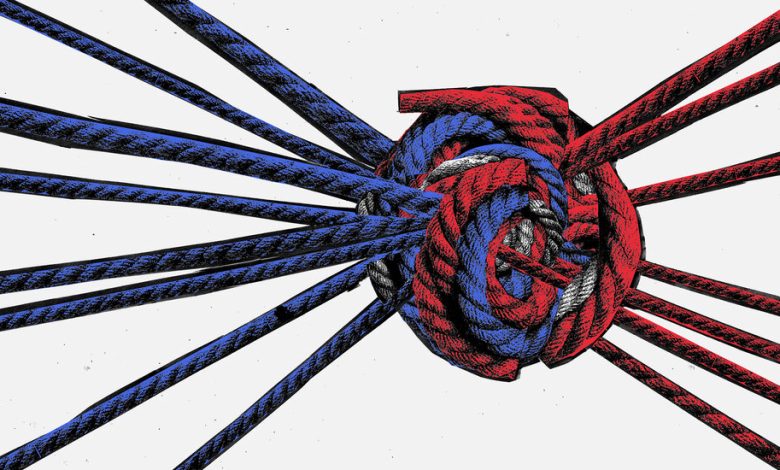A Racial Realignment in Politics Could Be a Good Thing

America will always be divided. There is no way to gather more than 300 million people from every race, faith and ethnicity across the globe, place them in one nation together and expect anything like unanimity on important religious, cultural or political issues. The real question is whether our divisions are sustainable or potentially fatal.
That might be the central question of the current political moment, and it’s against that backdrop that we should evaluate the meaning of several recent reports that American politics might be undergoing a racial realignment of sorts. Looking at electoral results and polling trends, there is evidence that voters of color are trending Republican.
According to 2016 exit polls, for example, Donald Trump improved on Mitt Romney’s performance with Black, Hispanic and Asian voters in 2012, and then he did better again in 2020 — despite losing the popular vote by a much greater margin in 2020 than he did in 2016. How did this happen? He did better with voters of color, but that was offset by a worse performance with white voters. He won the white vote by 21 percent against Hillary Clinton. Against Joe Biden, his margin narrowed to 17 points. Put another way, the racial gap narrowed in both directions. A higher percentage of minority voters voted for Trump, and a higher percentage of white voters voted for Biden.
Recent polling data indicates that this trend may well be continuing. As my colleague Tom Edsall notes in a fascinating column analyzing the evidence for and against a racial realignment in partisan politics, the aggregated polling data shows that “among Black voters, Biden led Trump by 55 points (73-18), far less than his 83-point margin in 2020. Among Hispanics, Biden led by six points (48-42), compared with a 24-point advantage in 2020.”
My purpose is to try to answer the inevitable next question. If the realignment is real, what does it mean? In the short term, even a slight racial realignment may make it more difficult for Biden to defeat Trump, but in the long term, any realignment that moves our democracy from identity-based division to idea-based disagreement is healthy for the United States.
If you look across American history and if you survey the world, you’ll see the pernicious effects of separating citizens on the basis of identity, broadly construed. Whether it’s Sunni versus Shia in Iraq, Catholic versus Protestant in Northern Ireland, the class-based purges of various communist revolutions, the antisemitism of Nazi Germany or the Tutsi-Hutu clashes in Rwanda, identity-based divisions dehumanize opponents and incentivize collective punitive action.




